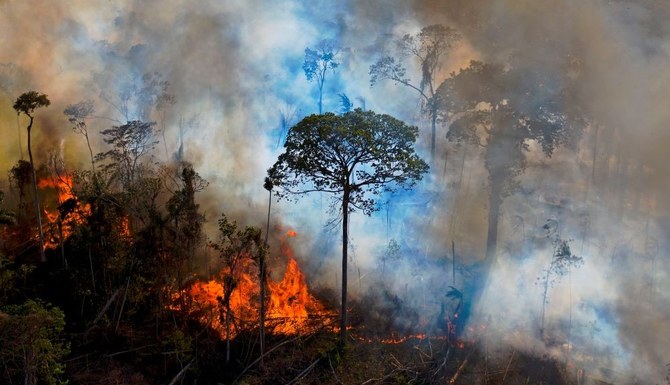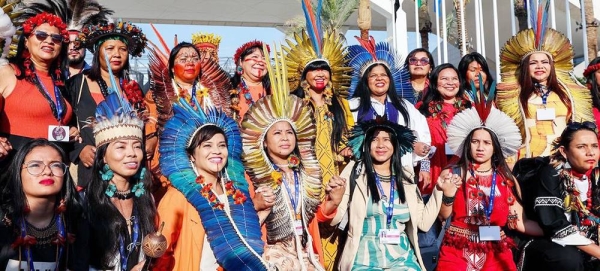
In the face of the ever-escalating problem of climate change and the devastating effects it is having on ecosystems worldwide, the need to address the issue deforestation has never been more urgent.
In March 2012, the UN recognized the pivotal role forests play in mitigating the effects of climate change when it established March 21 as the International Day of Forests, underscoring the critical need to safeguard these vital ecosystems.
This annual event also serves as a poignant reminder of the interconnections between our forests, climate stability and biodiversity, and of the need for collective action to combat deforestation, promote sustainable forest management, and preserve our planet’s natural resources for future generations.
Forests are not merely clusters of trees; they are intricate ecosystems that support myriad forms of life and provide essential ecosystem services. From the Amazon rainforest to the boreal forests of Canada, from the mangroves of Southeast Asia to the temperate forests of Europe, these diverse ecosystems sustain an astonishing variety of plant and animal species.
Forests also act as “carbon sponges,” absorbing huge amounts of carbon dioxide from the atmosphere, thereby helping to regulate the Earth’s climate. Moreover, they play a crucial role in maintaining the hydrologic cycle (the continuous movement of water on, above and below the planet’s surface), prevent soil erosion, and provide livelihoods for millions of people worldwide.
However, rampant deforestation driven by human activities such as agriculture, logging and infrastructure development poses a grave threat to our forests and the invaluable services they provide.
The loss of forest cover not only contributes to the build-up of greenhouse-gas emissions but diminishes biodiversity, disrupts water cycles, and exacerbates the effects of climate change.
Rich forest regions such as the Amazon basin, known as the “lungs of the Earth,” have experienced alarming rates of deforestation, driven by agricultural expansions and illegal logging. Similarly, in Southeast Asia vast swaths of tropical forests are being cleared to make way for palm oil plantations, leading to loss of habitats for endangered species such as orangutans and tigers.
These examples of deforestation underscore the urgent need for concerted efforts to halt such damaging activities and protect our remaining forest ecosystems.
The International Day of Forests is an important annual celebration that ought to serve as a rallying cry to raise awareness about the critical importance of forests in efforts to mitigate the effects of climate change and preserve biodiversity.
By highlighting the value of forests beyond their economic significance, this special day helps foster a deeper understanding of the intricate relationships between forests, ecosystems and human well-being. It encourages governments, policymakers, businesses and individuals to take proactive steps to address deforestation and promote sustainable forest-management practices.
One of the key strategies for combating deforestation is the development and implementation of policies and initiatives that incentivize sustainable land-use practices. Countries such as Costa Rica have demonstrated the effectiveness of “payments for ecosystem services” programs, through which landowners are rewarded for taking action to conserve forests and utilize ecosystem services such as carbon sequestration and water regulation.
Similarly, initiatives such as REDD+ (which stands for reducing emissions from deforestation and forest degradation in developing countries) provide financial incentives to nations that take action to reduce deforestation and invest in sustainable forest management.
Furthermore, the strengthening of land-tenure rights for indigenous and local communities is an essential element of forest-conservation efforts. Indigenous peoples have been the stewards of forest ecosystems for generations, and so they possess invaluable knowledge of traditions and practices for sustainable resource management. Empowering these communities to manage and protect their own ancestral lands not only strengthens their rights but also enhances the conservation of biodiversity and mitigates climate change.
In addition to policy interventions, consumer awareness and corporate responsibility can play crucial roles in efforts to combat deforestation. Consumers can make informed choices to support sustainably sourced products and boycott companies that engage in destructive practices such as illegal logging or deforestation for the sake of agricultural expansion.
Corporations, meanwhile, have a responsibility to adopt sustainable supply chain practices, agree and adhere to zero-deforestation commitments, and invest in reforestation programs as part of their corporate social responsibility initiatives.
In addition, international collaborations and partnerships are paramount in efforts to address deforestation on a global scale, given the interconnected nature of environmental issues.
Initiatives such as the Bonn Challenge, a global effort launched in 2011 with the goal of restoring 350 million hectares of deforested and degraded land by 2030, serve as exemplary models of concerted action.
This particular initiative brings together governments, businesses, civil society organizations and indigenous peoples from around the world to collaborate on reaching the common goal of restoring forest landscapes and promoting sustainable land-management practices.
Similarly, multilateral treaties such as the Paris Agreement on climate change provide a framework for countries to work together to reduce emissions resulting from deforestation and forest degradation.
Governments should commit to taking action to reduce greenhouse gas emissions and enhance resilience against the effects of climate change, including specific provisions for addressing changes of land use, including deforestation.
One of the key strategies for combating deforestation is the development and implementation of policies and initiatives that incentivize sustainable land-use practices.
Dr. Majid Rafizadeh
International cooperation and commitment to achieving shared goals, along with the adoption of effective initiatives to accomplish this, offer hope for a sustainable future in which forests thrive, ecosystems flourish, and the effects of climate change are mitigated for the benefit of generations to come.
The dedication by the UN more than a decade ago of March 21 as International Day of Forests underscored the critical importance of addressing the problem of deforestation as part of our efforts to mitigate climate change and preserve biodiversity.
From the lush rainforests of South America to the vast woodlands of Africa and the majestic, coniferous forests of North America, forests are invaluable assets that must be protected for the well-being of current and future generations.
By promoting sustainable forest-management practices, empowering indigenous and local communities, engaging consumers and corporations, and fostering international collaborations, collectively we can combat deforestation and safeguard our planet’s natural resources.
As stewards of that planet, it is our moral obligation to take decisive action now to protect forests and ensure a sustainable future for all life on Earth.
Dr. Majid Rafizadeh is a Harvard-educated Iranian American political scientist. X: @Dr_Rafizadeh












